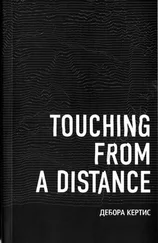Because the beginning and the end of the caravan curved behind the horizon, from afar the train seemed to be motionless. It was only when he got closer that Håkan made out the heavy-gaited beasts pulling ponderous wagons, and, trudging next to them, a multitude of men, women, children, and dogs. Few people rode. Nearly all saddles were empty; most seats were unoccupied. Marching alongside their teams, the drivers cracked (and sometimes applied) their long-lashed whips and encouraged or insulted the yoked animals. Everyone was young, but they all looked old. Most of the travelers were engaged in the all-consuming business of moving forward—spurring the oxen on, making adjustments to the harnesses, tightening up broken locks, replacing wheels, resetting tires, greasing axle shafts, steering their herds, marshaling their children. Some managed to share domestic moments on their moving wagons: have family meals, pray, play music, and even give school lessons. People went from one party to the next, trading and bartering. And everywhere, dogs. Some walked lazily under the wagons, hiding from the sun, but most ran in packs, prancing in between the legs of horses and cattle, snapping and yapping, pestering the oxen, sniffing the air for food, picking fights with one another, and getting kicked in the ribs by impatient boots. By the side of the rut, several emigrants had stopped by a broken wagon and were helping make a new axle out of a log. As far away from the trail as safety permitted, a group of women stood in a circle, all of them facing out and spreading their skirts to the sides, creating a round calico screen. Whenever a woman came out, arranging her dress, another one went in. On occasion, the ignored report of a rifle came from afar. Scouts were constantly leaving and rejoining the caravan. As Håkan walked past each convoy, people quieted down and stared at him from under their hats and bonnets, their eyes invisible in the strip of shade cast by the brims. During these brief silences, all that Håkan could hear was the grinding of the iron tires, the rattle of harnesses, the dry impact of wood on wood, and the stiff flap of waterproofed canvas.
The sides of the rut were one long latrine to which men and women continually contributed bucketfuls of waste. Here and there, like irregular milestones, mounds of rotten bacon and offal emerged from the muck. Dead cows and horses—some of them skinned—shrunk under the sun. Håkan kept walking against the current of wagons. It was inconceivable that the crowded procession could have an end. Lorimer had been right when he had described it as a massive city stretched out into one thin crawling line.
Some travelers nudged each other, snickering at Håkan’s outfit. But for the most part, they looked at him with mute curiosity. Nobody greeted him. He spotted a young couple—not much older than he, he guessed—and, trying to overcome his shyness, changed direction and started to walk alongside them on the other side of the slimy stream. They looked at him furtively and exchanged discreet, worried whispers. Finally, Håkan found the courage to address them. He introduced himself. They politely pretended to understand his name, and he theirs. A long silence ensued. The man cheered his team on. Håkan asked if they had a horse for sale. They could not spare any of their horses, but they referred him to a man a few wagons up who had more livestock than anyone else in that company. He thanked the couple and caught up with the man in question. After a short and failed exchange, Håkan stated his request. The man quoted a massive amount that made Håkan’s entire capital—which he hitherto had thought to be quite respectable—seem insignificant.
For the rest of the afternoon, Håkan kept walking up and down the train, asking if anyone had a horse for sale. The sellers always asked for prices that could never be met and bore no relation to each other—one asked almost one hundred times the already exorbitant sum demanded by another. Ever since he had landed in San Francisco, all the commercial transactions Håkan had witnessed had been conducted in the most extravagant terms, always dictated by circumstances. The pound of bacon for which prospectors in the desert paid in gold, today lay rotting by the emigrant trail. A simple piece of wood that never would have caught a trapper’s attention, now, in the tree-deprived plains, was exchanged for a calf to replace a broken axle shaft. But horses were the one commodity exempted from these drastic ebbs and flows. They remained consistently unattainable. And not only that: they were, on the whole, excluded from commerce. Men were reluctant to part with their horses, regardless of the sum offered, and whenever forced to sell them, they always felt that they had been swindled, even if the amount received had been outrageously high—probably because they knew that they would be unable to replace the sold property. Knowing all this made the loss of Pingo, painful as it had already been, almost intolerable. Every day, Håkan was visited by the elation he had experienced riding his own horse, a feeling that had been intense enough (his physical frame had barely been able to contain it) to ripple through time and lap against the present.
Although far from ideal, he believed that getting to New York on foot was not such a wild thought. It rained often enough and walking against the trail solved the problem of finding supplies for the journey. He was resigning himself to this plan when an armed rider approached him. He stopped at a prudent distance.
“Evening,” said the man, whose beard had not quite caught up with the mustache that must have preexisted it. In this exuberant thicket glowed a calm yet intense smile, and below a pair of dense eyebrows—the mustache’s runaway offspring—shone a set of twinkling green-blue eyes, which, although sharply focused on Håkan, stirred from side to side with mousy eagerness. There was something sunny and even melodious about his countenance. He looked like the happiest man Håkan had seen since arriving in America—maybe even the happiest man he had seen in his life. Håkan greeted him back, and the man responded with a seemingly welcoming speech, of which Håkan understood almost nothing. Still, he noticed that the tone, cadence, and rhythm of the man’s voice did not match his face—the natural arrangement of his features resulted in something that looked like cheerfulness but did not reflect an inner state. After a failed exchange, the man gathered that the newcomer’s English was limited and spoke to him slowly and, as people often do with foreigners, loudly. Håkan responded to his questions as best he could while the man nodded along, as if with the deep dips of his chin he could dig out from the air the words that the Swede missed. Introductions were made (Hawk? Hawk can? Hawk can what?), and Jarvis invited Håkan to dinner with his family.
As they moved on, it became clear that strife and resentment were widespread among that particular convoy and that there were at least two factions—those who warmly greeted Jarvis as he passed by, and those who, with a hostile frown, turned their backs on him.
“I hear you’re looking for a horse,” the man said.
“Yes.”
“Want one of mine?”
“How much?”
“You must be hungry.”
Careworn and always shrouded in a mackinaw blanket, Abigail, Jarvis’s wife, was drained of all the joy and gaiety that her husband’s face, probably despite itself, so radiantly displayed. She was a rawboned matron, slightly disfigured by exhaustion and bitterness. Her children annoyed her. The elements annoyed her. Her husband annoyed her. The animals annoyed her. Håkan annoyed her.
The sun would soon set. As if by common accord, hoots and whoops burst throughout the caravan, and the train came to a stop. With difficulty, but also with great coordination, the drivers got out of the rutted track and fanned away from the trail. The plains echoed with whistles and the few utterances the oxen seemed to understand—So, then! Yah! So, then! Wo! Gradually and (despite the arduous, plodding maneuvers) with remarkable grace, the wagons were wheeled into wide circles, the hind axletrees chained to the tongues. The oxen were unhitched and left free to roam together with most of the cattle within these large improvised corrals while the rest of the stock and horses were hobbled and left to pasture at their leisure. India rubber cloths were laid out on the ground, and cooking utensils were brought out. As the men pitched precarious tents outside the circle, the women produced hard brown discs from sacks and crates, piled them up together with some kindling, and set them alight. Håkan looked at Abigail’s heap and asked what those odd cakes were. She ignored him. He picked one up from her bag and smelled it. Dung. Jarvis saw him inspecting the disc and explained that, as Håkan had surely noticed, there was no timber to be found on the plains, and that they had to rely on dried buffalo manure for fuel. The chips had a steady and smokeless burn that glowed brighter whenever the fat of the buffalo meat roasting upon tapering spits dripped down on them. That meat, together with bacon and corn flour fried in buffalo lard, was, as Håkan would learn, their daily bill of fare. Combined day after day in tinware that was never fully cleaned, these viands had solidified in a crust at the bottom of every pot, pan, and bowl, infusing whatever was put in them (including the occasional pickle and the dried apples steeped in warm brandy they had on special occasions) with the same flavor.
Читать дальше












